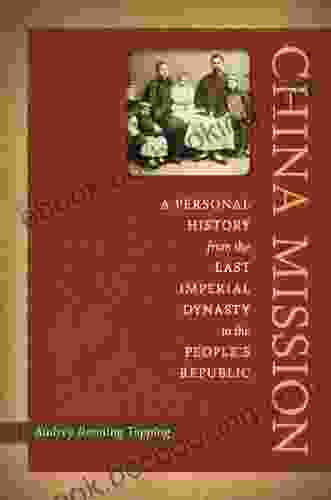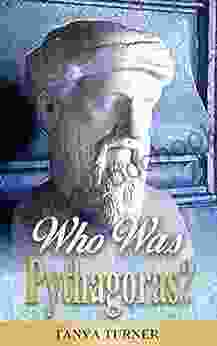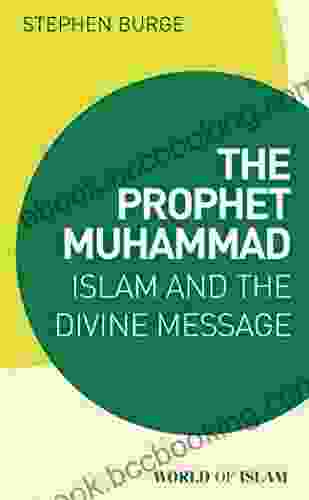Unlock the Enigmatic World of Pythagoras: A Journey Through His Life and Teachings

In the annals of history, the name Pythagoras forever echoes as a symbol of intellectual brilliance and enigmatic mysticism. As the founder of the Pythagorean society, a secretive brotherhood of scholars, Pythagoras profoundly influenced the philosophical, mathematical, and spiritual landscape of ancient Greece. His teachings touched upon a vast tapestry of subjects, from the harmony of numbers to the transmigration of souls, leaving an indelible mark on Western thought that continues to resonate today.
Pythagoras: The Early Years and Influences
Pythagoras was born around 570 BCE on the Aegean island of Samos, to a wealthy merchant family. From a young age, his thirst for knowledge led him to travel extensively, seeking out the wisdom of renowned thinkers and mystics. In Egypt, he immersed himself in the ancient mathematical and spiritual practices of the priests. He also studied in Babylon, where he encountered the advanced astronomy and mathematics of the Chaldeans.
5 out of 5
| Language | : | English |
| File size | : | 1128 KB |
| Text-to-Speech | : | Enabled |
| Screen Reader | : | Supported |
| Enhanced typesetting | : | Enabled |
| Word Wise | : | Enabled |
| Print length | : | 11 pages |
| Lending | : | Enabled |
The Pythagorean Society
Upon his return to Greece, Pythagoras established a philosophical and spiritual community in Croton, southern Italy. The Pythagorean society, a secretive Free Download, became a haven for intellectuals and seekers of truth. Members of the society adhered to strict rules of conduct and discipline, including vegetarianism, abstinence from certain foods and clothing, and a dedication to the pursuit of knowledge.
Pythagorean Philosophy
The core of Pythagorean philosophy centered around the belief in the divine nature of numbers. Pythagoreans saw numbers as the fundamental building blocks of the universe, possessing both mathematical and metaphysical properties. They extended this belief into music, geometry, astronomy, and other fields, seeking to uncover the hidden harmonies and patterns that governed the world.
One of the most famous Pythagorean discoveries is the Pythagorean theorem, which establishes the relationship between the sides of a right-angled triangle: a2 + b2 = c2. This theorem not only had practical applications in geometry and architecture but also held deep philosophical significance, representing the harmony and Free Download inherent in the universe.
Ethics and Metaphysics
Beyond mathematics, Pythagoreans also developed a comprehensive ethical system. They believed in the transmigration of souls, or reincarnation, where the soul undergoes repeated cycles of birth, death, and rebirth until it achieves purification and union with the divine. This belief influenced their ethical principles, which emphasized self-control, moderation, and the pursuit of virtue.
In metaphysics, Pythagoreans proposed a dualistic cosmology, where the universe consisted of two opposing realms: the world of Forms (the eternal and immutable) and the world of becoming (the physical and changing world). They believed that the soul, being a fragment of the divine, could ascend through a series of purifications to transcend the material world and attain spiritual enlightenment.
Legacy and Impact
Pythagoras' teachings had a profound impact on ancient Greek philosophy and Western thought as a whole. Plato and Aristotle, two of the most influential philosophers of all time, were deeply influenced by Pythagorean ideas. The Pythagorean concept of the harmony of numbers shaped the development of mathematics and music theory. Their ethical teachings influenced Stoicism and Neoplatonism, and their spiritual beliefs found resonance in later religious and mystical traditions.
The Pythagorean society eventually declined, but its teachings continued to be studied and debated for centuries. Renaissance scholars, such as Nicolaus Copernicus and Johannes Kepler, rediscovered Pythagorean ideas and incorporated them into their scientific theories. The legacy of Pythagoras endures today, inspiring mathematicians, philosophers, and seekers of truth around the world.
Pythagoras, the enigmatic philosopher and mathematician, left an indelible mark on the intellectual and spiritual landscape of the ancient world. His teachings on the divine nature of numbers, the transmigration of souls, and the pursuit of virtue continue to resonate today, inspiring awe and wonder in those who seek a deeper understanding of the universe and their place within it. Unraveling the enigmatic world of Pythagoras is a journey into the profound depths of human knowledge, a testament to the transformative power of ideas that transcend time.
5 out of 5
| Language | : | English |
| File size | : | 1128 KB |
| Text-to-Speech | : | Enabled |
| Screen Reader | : | Supported |
| Enhanced typesetting | : | Enabled |
| Word Wise | : | Enabled |
| Print length | : | 11 pages |
| Lending | : | Enabled |
Do you want to contribute by writing guest posts on this blog?
Please contact us and send us a resume of previous articles that you have written.
 Book
Book Novel
Novel Page
Page Chapter
Chapter Text
Text Story
Story Genre
Genre Reader
Reader Library
Library Paperback
Paperback E-book
E-book Magazine
Magazine Newspaper
Newspaper Paragraph
Paragraph Sentence
Sentence Bookmark
Bookmark Shelf
Shelf Glossary
Glossary Bibliography
Bibliography Foreword
Foreword Preface
Preface Synopsis
Synopsis Annotation
Annotation Footnote
Footnote Manuscript
Manuscript Scroll
Scroll Codex
Codex Tome
Tome Bestseller
Bestseller Classics
Classics Library card
Library card Narrative
Narrative Biography
Biography Autobiography
Autobiography Memoir
Memoir Reference
Reference Encyclopedia
Encyclopedia William Powers
William Powers Zane Dowling
Zane Dowling Matt Bronsil
Matt Bronsil Kirstie Mclellan Day
Kirstie Mclellan Day Masood Farivar
Masood Farivar Lsat Unplugged
Lsat Unplugged Kimberly Schlapman
Kimberly Schlapman Nicki Grace
Nicki Grace Ta Nehisi Coates
Ta Nehisi Coates Shannon E Perry
Shannon E Perry Madelynne Diness Sheehan
Madelynne Diness Sheehan Matt Rendell
Matt Rendell Zoltan Bartok
Zoltan Bartok Lei Wang
Lei Wang Uta C Merzbach
Uta C Merzbach Theodore X O Connell
Theodore X O Connell Rosa Parks
Rosa Parks Thomas Hughes
Thomas Hughes Lexi Sundell
Lexi Sundell Robert Riefstahl
Robert Riefstahl
Light bulbAdvertise smarter! Our strategic ad space ensures maximum exposure. Reserve your spot today!

 Robert Louis StevensonImmerse Yourself in the Enchanting Realm of "The Sacrifice and Other Steam...
Robert Louis StevensonImmerse Yourself in the Enchanting Realm of "The Sacrifice and Other Steam... Jett PowellFollow ·5k
Jett PowellFollow ·5k Shaun NelsonFollow ·14.2k
Shaun NelsonFollow ·14.2k Ted SimmonsFollow ·3.2k
Ted SimmonsFollow ·3.2k Jake PowellFollow ·18.2k
Jake PowellFollow ·18.2k Hayden MitchellFollow ·10.5k
Hayden MitchellFollow ·10.5k Drew BellFollow ·12.1k
Drew BellFollow ·12.1k Nikolai GogolFollow ·6.4k
Nikolai GogolFollow ·6.4k Jackson HayesFollow ·8.7k
Jackson HayesFollow ·8.7k

 Philip Bell
Philip BellPersonal History: From the Last Imperial Dynasty to the...
By Author Name A...

 Gustavo Cox
Gustavo CoxAlexander Csoma de Kőrös: The Father of Tibetology
Alexander...

 Harvey Bell
Harvey BellUnveiling the Titanicat: Dive into the True Stories...
A Literary Voyage into the...

 José Martí
José MartíUnveiling the Festive Flavors of Christmas: A Culinary...
As the crisp winter air fills with the...
5 out of 5
| Language | : | English |
| File size | : | 1128 KB |
| Text-to-Speech | : | Enabled |
| Screen Reader | : | Supported |
| Enhanced typesetting | : | Enabled |
| Word Wise | : | Enabled |
| Print length | : | 11 pages |
| Lending | : | Enabled |














